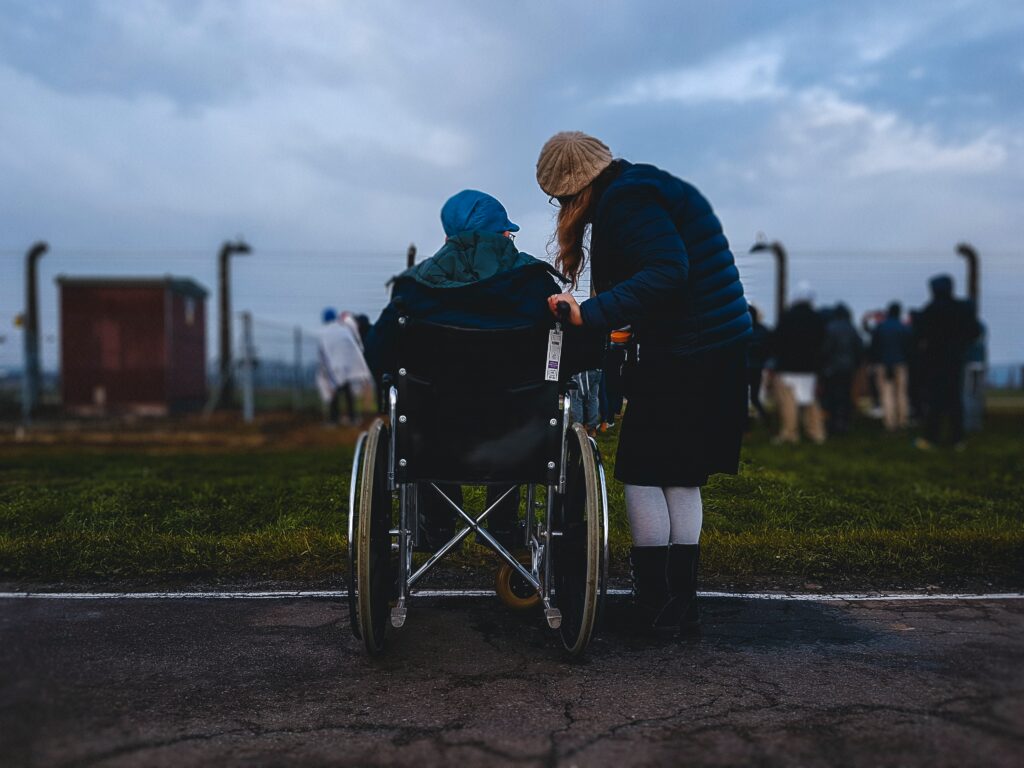⏱️ Estimated Reading Time: 3 min read
You may be surprised, as I was, to find out that God addresses how Christians are to interact with disability in Leviticus 19:14: “You shall not curse the deaf or put a stumbling block before the blind, but you shall fear your God: I am the Lord.” When you combine this with the commandment to love your neighbor as yourself, you develop a basic and useable disability etiquette: kindness, love, and empathy.
Leviticus 19:14 is a practical piece of advice for when you are interacting with someone who has a disability, don’t do things that make their life harder. Don’t cause them to trip, or lead them through puddles, or mock them when they can’t hear you. Instead, we are to do the opposite. We are called to remove stumbling blocks from the path of the blind, bless the deaf, and love our neighbor as ourselves, regardless of ability level.
This summer, I attended a Joni and Friends Family Retreat – a week-long respite camp for families living with disabilities. It was my first time doing one of these, and it was intimidating! The first night I was there, the families had not yet arrived. We were spending the evening doing training to prepare for their arrival. As a result, some of the new volunteers serving had to spend dinner blindfolded to experience what it was like to be blind. I was terrified – I knew no one at this camp, and I was suddenly entirely dependent on others for my safety. I had to be led around, and I immediately felt a sense of isolation during the half-hour that I couldn’t see. It was a powerful illustration of the difficulties blind people encounter every day.
Interestingly, God saw fit to blindfold me on that first night of camp when I could have been in another group which experienced another disability during dinner. I didn’t think anything of it at the time, but when the camper I was paired with arrived the next day, I discovered that she was visually impaired. My spending just half an hour blindfolded gave me a newfound empathy for how difficult it would be to struggle to see.
Throughout the week, I referred back to that experience to figure out what sensory information would be helpful and interesting for her. I steered her away from the stairs, explained to her what kind of surfaces she was walking on, and offered things that she could touch since she couldn’t see well. She especially enjoyed petting a service dog at camp. As a result of this experience, I think that kindness and love need to flow out of empathy. When we can put ourselves in someone else’s shoes for just a moment, we discover difficulties and challenges we never imagined. Still, we also discover beautiful ways to show love and kindness to them. How can we best care for those with disabilities, whether they are blind, deaf, wheelchair users, or anything else? It’s simple – kindness, love, and empathy. When we start with those, the practical things become far easier.



